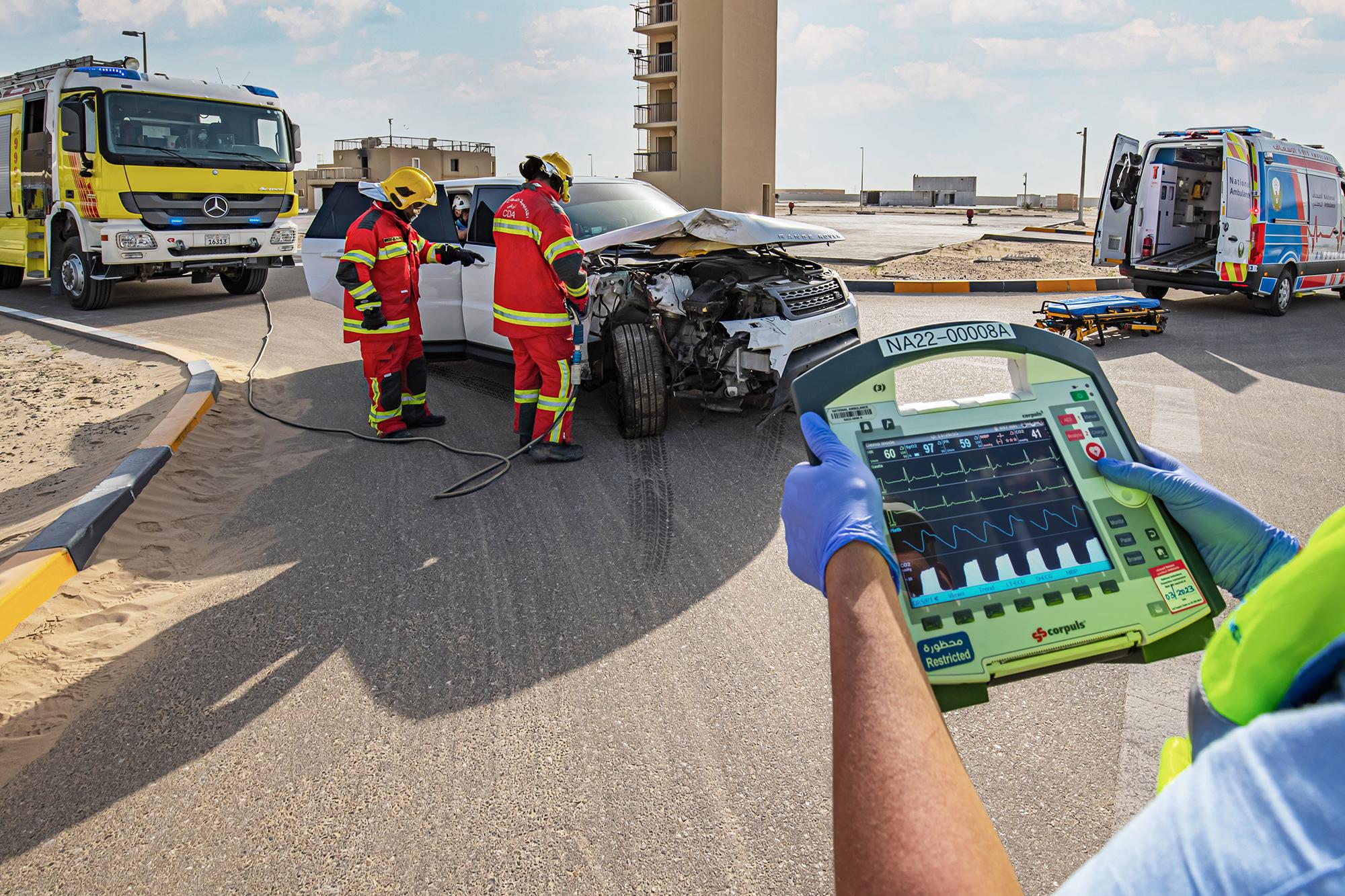NATIONAL AMBULANCE UPGRADES FLEET USING BREAKTHROUGH MEDICAL TECHNOLOGIES
Half of existing vehicle fleet has been replaced with remainder expected by the end of 2022. Upgrade to include one of the most advanced medical equipment which utilises AI and wireless integration is a turning point in emergency medical services.
29 Jun 2022
Abu Dhabi, 29 June 2022: Today, National Ambulance announced the complete upgrade of its fleet of emergency vehicles to incorporate the latest medical technologies that will improve patient care, especially in critical emergency situations. In line with the UAE’s objectives for smart healthcare, National Ambulance’s invested in the most advanced equipment that incorporates AI-powered medical device integration, advanced patient data management solutions and semi-wireless monitoring of patients during emergencies. Fifty percent of National Ambulance’s fleet of vehicles in the Northern Emirates has already been replaced, with the remainder expected to be completed by the end of this year.
The new vehicles have been manufactured to specifications and CEN1789 European Safety Standards and are fully equipped with one of the most advanced Cardiopulmonary Resuscitation (CPR) and monitoring technologies available to emergency medical services. They are fitted with the modular Corpuls3 Defibrillator Monitor and the Corpuls CPR compression device, which work together under AI-powered wireless integration system. Additionally, the technologies have been tested under vigorous conditions and are approved for use in temperatures of up to 55 Celsius making them suitable for use in hot weather conditions.
Commenting on this breakthrough in emergency medical care, Ahmed Al Hajeri, Chief Executive Officer, National Ambulance, said: “The upgrade to our fleet of emergency vehicles to include the latest medical technology and AI is a turning point in emergency medical services which enhances the UAE’s leading position on a regional and international level in this vital sector. There are immense advantages to using the new technology, so today is a proud moment for us all at National Ambulance ensuring we remain at the frontline, both in terms of quality and innovations, and in the patient care we provide.
On the importance of these devices, Dr Ayman Ahmad, Chief Administrative Medical Officer, said: “There are significant advantages to using the Corpuls CPR and Corpuls3 Defibrillator Monitor, particularly in the most critical situations when time is essential. It automates parts of the treatment process which ensures better patient outcomes and a faster response time. We have fully tested the system with our paramedics and are confident that our patients will see the immense benefit in the service we deliver to them.”
“It can also be used for a longer period due to its significantly larger battery life and its low weight making it more effective at emergency incidents, and more generally, for a wider range of people (such as children as young as 8 years old, obese patients and pregnant women) than the previous equipment we had. It is also the CPR device with the highest temperature tolerance and the best dust and water protection ratings,” he added.
The Corpuls3 allows the defibrillation of the heart and monitoring of patients’ vital signs semi-wirelessly and from a distance of up to 10 metres. The Corpuls CPR on the other hand uses a smart sensor designed to measure the pressure on the patient’s chest so that compression depth, rate and mode can be set accurately and adjusted at any time. When both systems are connected to each other, the paramedic can observe and control the patient’s automated chest compressions using the monitor from a distance in a completely wireless fashion, which is especially useful when treating highly infectious patients or in the event of motor crashes or possible radiation exposure. With the integration feature (Corpuls synchronisation) , the quality of care is significantly improved in all aspects such as heart rhythm analysis, continuous chest compressions and defibrillation, especially in challenging environments such as stairwells, and in hazardous transport conditions which can be very risky to both patients and paramedics.
Another significant upgrade is the system’s data storage and management capabilities, allowing for the storage and retrieval of hundreds of records from medics or the QHSE team, which significantly improves transparency, traceability, and compliance. The data can also be transmitted wirelessly, securely, and according to the latest guidelines to the patient care record system of National Ambulance, which can then be used for debriefing, quality improvement and medical research to improve evidence-based practices.
National Ambulance provides emergency pre-hospital care in the Northern Emirates through the dedicated 998 emergency ambulance number and NA 998 mobile application. Its primary task is to handle public medical emergency response and provide high standards of emergency pre-hospital care to citizens, residents and visitors across the Emirates of Sharjah, Ajman, Umm Al Quwain, Ras Al-Khaimah and Fujairah.





